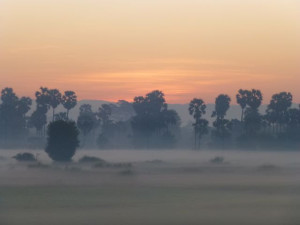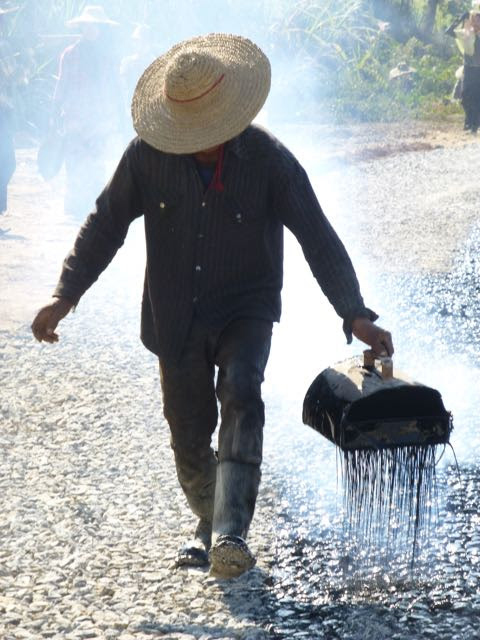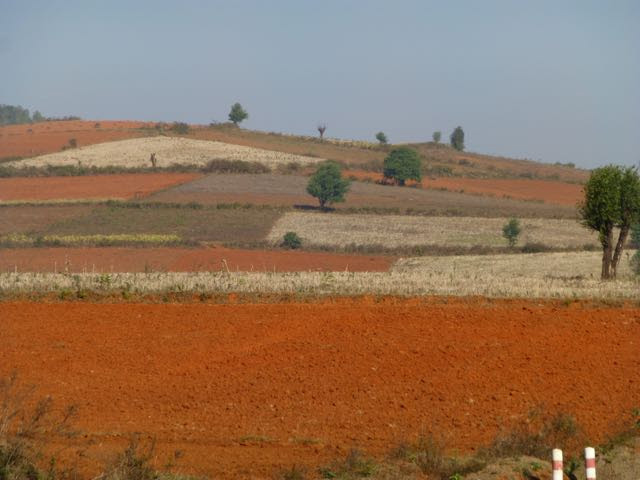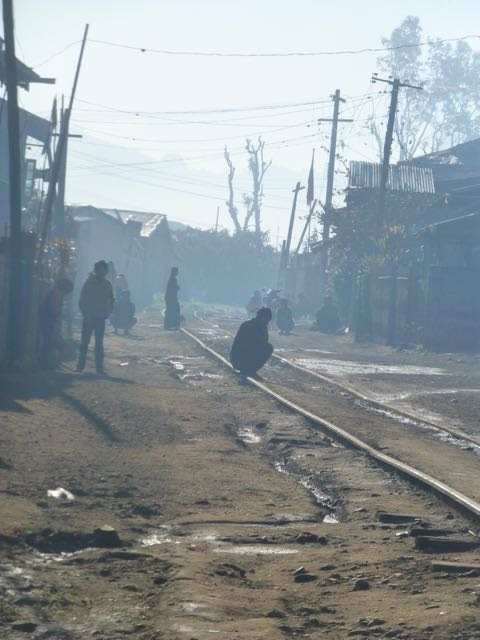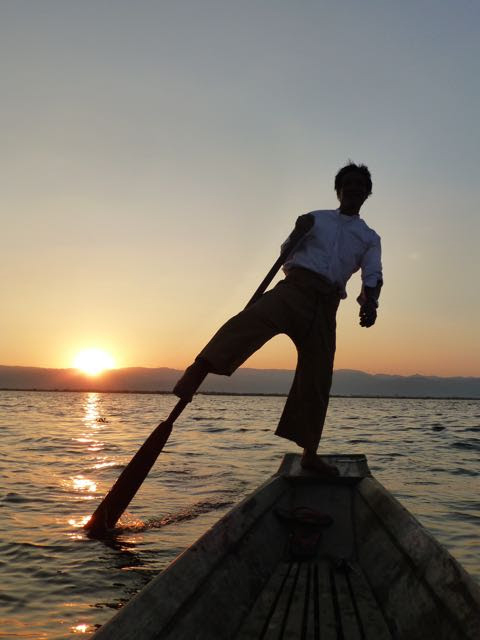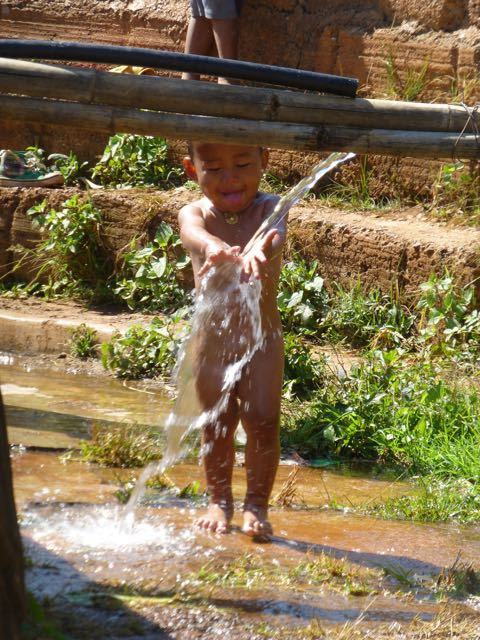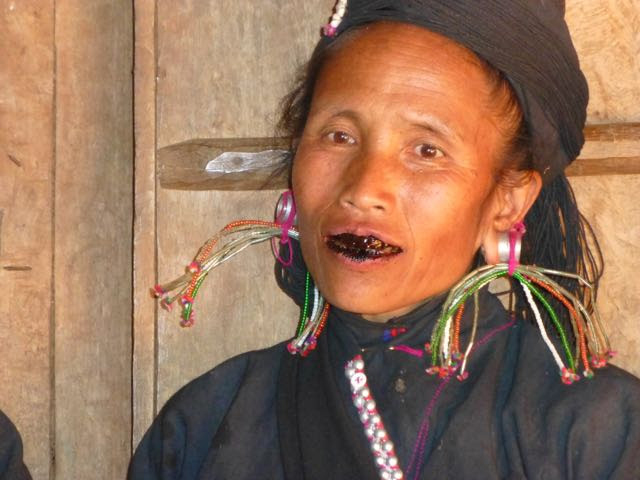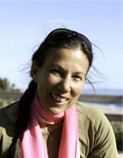In travel, timing is everything. And in our case, timing did not do us any favors. Two days before we arrived in Yangon, the Kachin Insurgent Army (KIA) decided to move its operations to the very heart of the jade mines west of Myitkyina, in an area called Hpangthong. That the Stilwell Road bisected their new territory apparently mattered not a wit. Not only was our permit for Myitkyina yanked, all permission to drive the Stilwell Road was summarily denied. So here we are, jouncing around the country with Joe, our cheery Ministry of Trade and Tourism minder, along with Saw, our ever-resourceful guide, seeing what’s to be seen, but not going anywhere near Kachin State.
As we ramble around in Brunhilde, making our plans day-by-day, we are learning first hand just how closed to foreigners Myanmar still is. Many nights we peruse our map with Saw. “Let’s go here, and drive this little road,” one of us says.
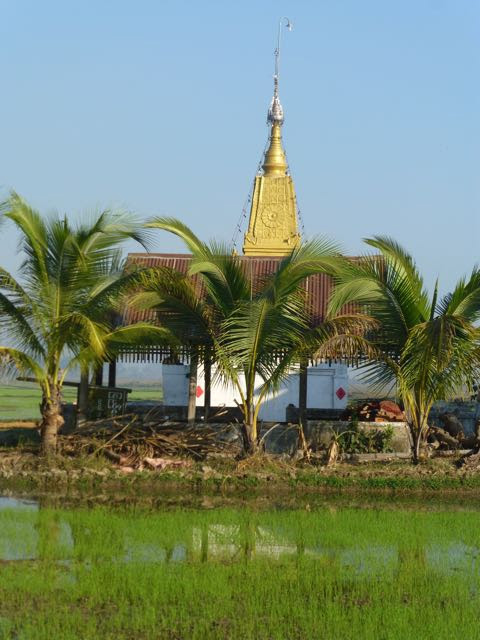
“Not possible,” Saw says, his face impassive, his dark eyes expressionless.
“Really? How come?” we challenge him. Politely.
“Opium,” he says. Or, “Mines.” Or perhaps “Rebels.” One road after another is off limits. If we can’t get on a particular road, then we can’t get to a particular place. And so it goes.
“But can’t we go anyway?” we wheedle. “We’re just one car. And it looks like a great road.”
“Cannot do.”

In some cases we can fly, as we did from Inle Lake to far eastern Shan State and a small city called KyaingTong, just 100 miles south of the China border. But flying isn’t the point of this trip, and when we’re not in our own car we start to feel as though an essential part of us is missing. So, after our brief foray eastward, we’ve decided to stay firmly on the ground for the remaining two weeks.

What I can report so far is that Myanmar is going through a tremendous transition. In the 3 years since we were here, tourism has increased from 300,000 to 3 million. Underpowered scooters that buzz like wasps, are everywhere. Traditional homes in remote villages, usually built of bamboo, are being replaced by cinderblock construction. The contrasts between traditional and contemporary, old and new, are everywhere. Yet I still see endless loveliness, even in such contrasts. Already I have so many visual memories I want to write a few of them down and also include as many photos as I think readers can tolerate.
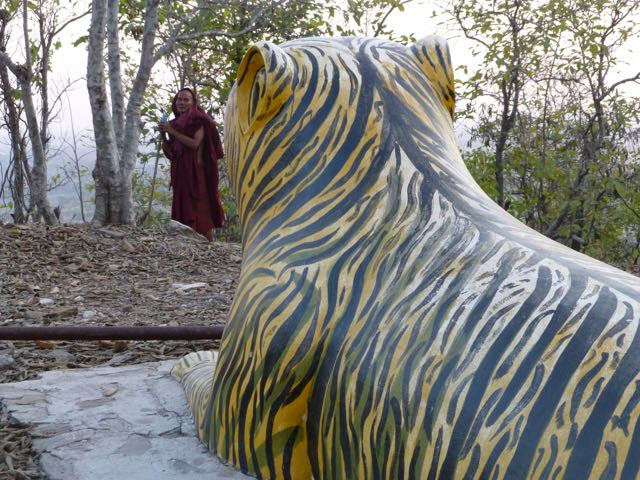
For instance, there’s the local road crew carefully pouring hot asphalt from a can punctured with holes.
Plump, pearl grey Zebu bullocks plod along the side of the road between Yangon and Taunggoo, pulling a two-wheeled cart heaped with hay. In the hills above Mandalay it’s citrus season. We stop at a roadside stand to inspect mounds of honey-sweet tangerines and softball sized, brown-skinned avocados. We stock up on the former, leaving the latter for someone better equipped to deal with the slippery messiness.
After extricating ourselves from a road which rolled in on itself like a snake with a belly ache, we drove past a village school where a young boy in the green longyi of grade school leaped a yellow-washed wall to retrieve his woven bamboo soccer ball. The morning dew carries a heavy scent of musk, old urine and frying eggs, which makes me alternately gag and salivate.
Dropping down from the heights of PinLaung to Inle Lake, crinkled ochre hills turn into silvery outlines in the smoky haze.
As we get closer, we can see gilded white stupas which split the forest canopy like gold-capped sharks teeth. Tea break mid-morning is at a roadside teahouse, where stall merchants perch on tiny blue plastic stools, eating samosas and fried sweet dough sticks while watching Chelsea beat Manchester City in a Premier League match.
A woman stands at the edge of her swept dirt yard, negotiating the price of some sweets with a mobile vendor whose motorbike is festooned with cellophane packets glinting like a disco ball. I puzzle over the local anomaly of calling tangerines oranges and oranges Sunkists. Ang women still chew tree bark that makes their teeth shiny black.









